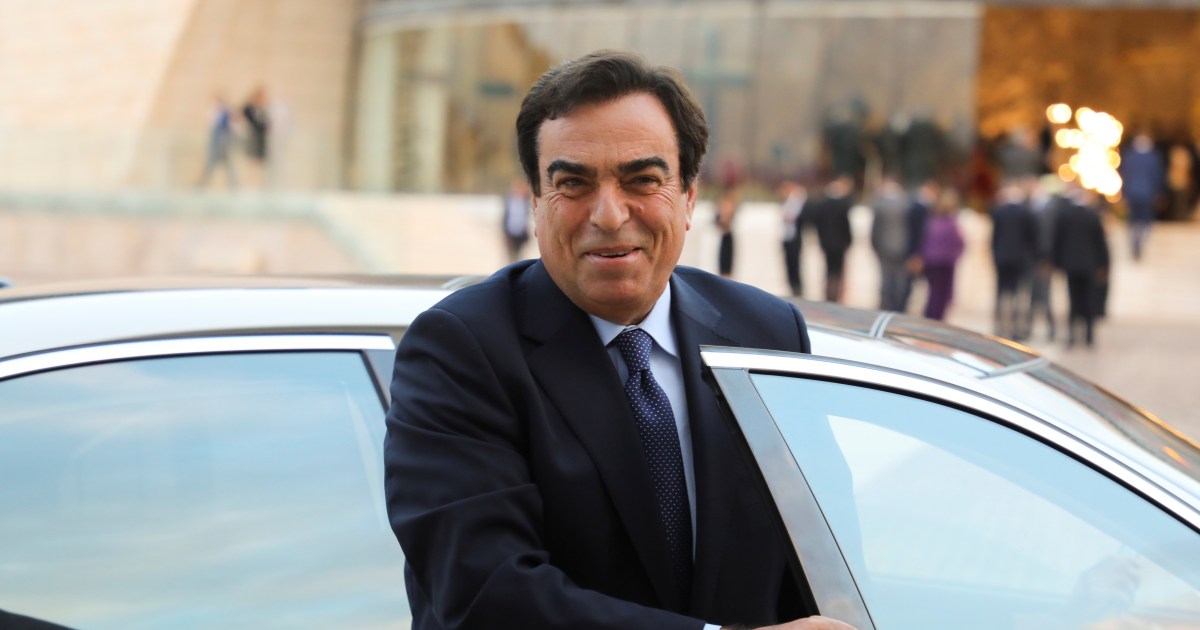A local Lebanese channel quoted the Lebanese Minister of Information, George Kordahi, as saying that his resignation is "not out of the question" against the background of the crisis sparked by his statements regarding the Yemen war, amid ongoing repercussions, as the UAE called on its citizens in Lebanon today, Sunday, to leave as soon as possible.
Al-Jadeed channel said on its website, today, that Qardahi assured her that "his resignation from the government is out of the question", without any details.
For his part, the Maronite Patriarch Bechara Al-Rahi - who met with Qardahi yesterday, Saturday - said that the crisis with Saudi Arabia and the Gulf states is multi-causal and cumulative and would harm Lebanon's interest.
The sponsor called on President Michel Aoun and the government, Najib Mikati, to take "decisive" steps to defuse the crisis in relations between Lebanon and the Gulf states.
Yesterday, Aoun reiterated his keenness to establish the best relations with Saudi Arabia, while international efforts were made to calm down, amid US-French adherence to the survival of the Mikati government.
intense contacts
The Lebanese Ministry of Foreign Affairs said today that Foreign Minister Abdullah Bou Habib called his Qatari counterpart, Sheikh Mohammed bin Abdul Rahman Al Thani, and stressed the importance of communicating with all Gulf and Arab brothers.
The ministry added that Bou Habib affirmed his country's keenness to take measures conducive to overcoming the current crisis and restoring relations to normal, and expressed his welcome and thanks for all efforts made "to contain the escalation and mitigate the severity of the crisis," according to a statement by the minister's media office.
On the other hand, US Secretary of State Anthony Blinken said in a tweet on Twitter that he discussed today with his Saudi counterpart, Faisal bin Farhan, "the situation in Lebanon, and the need to immediately restore the transitional government with civilian leadership in Sudan," in a meeting held on the sidelines of their participation in the G8 summit. Twenty in Rome.
Earlier, the Lebanese Foreign Minister, Abdullah Bou Habib, said - in an interview with Al Jazeera Mubasher - that there is an American-French adherence to the Mikati government, and that Minister Qardahi "is consulting to take his last decision."
He added that his country will not sever its relations with the countries that have withdrawn their ambassadors, adding that the government will not accept that Lebanon works against Saudi Arabia's interest.
In the same context, the Lebanese Minister of Education, Abbas Al-Halabi, said - in an interview with Al-Jazeera - that the US administration is in contact with the Saudi side, and that it is committed to the Mikati government.
The crisis erupted as a result of Qardahi's statements in an interview broadcast last Monday, which was recorded before his appointment as a minister last September, in which he saw that the Houthis in Yemen were defending themselves in the face of external aggression from Saudi Arabia and the UAE.
On Friday, Saudi Arabia summoned its ambassador to Beirut and asked the Lebanese ambassador to leave Riyadh and decided to ban all Lebanese imports. Bahrain and then Kuwait followed suit in requesting the departure of the Lebanese ambassador, and the UAE decided to withdraw its diplomats from Beirut.
The UAE Foreign Ministry said, in a statement on its website today, that "in view of the current events", it directs "all its citizens present in Lebanon to return to the UAE as soon as possible."
It indicated that it had taken "all necessary measures to facilitate the return of its citizens from Lebanon," stressing its readiness "to harness all capabilities to assist any citizen in Lebanon... to return to the UAE."

